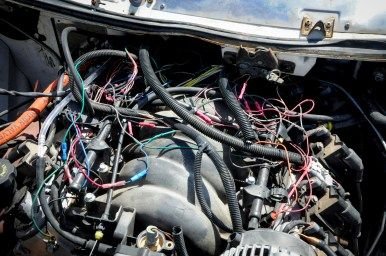
Does Car Insurance Cover Electrical Problems?
Does car insurance cover electrical problems? Yes, auto insurance covers electrical failures, but only if they are caused by a covered scenario such as an accident or vandalism. For example, if an accident causes an electrical failure, the policyholder’s collision insurance policy will cover repairs, but not if the damage is caused by poor maintenance, neglect, or wear and tear. It’s also worth noting that comprehensive and collision coverage is optional under state law, so be sure to check your coverage details to see if your policy applies to the situation.
If the electrical failure was not caused by a covered scenario, you may still be covered if you have Mechanical Breakdown Insurance (MBI). Comprehensive, collision, and mechanical breakdown insurance are generally subject to a deductible, so you cannot claim if the cost of the damage is less than your deductible. Even if the damage is minor, it may not be worth claiming claims typically lead to higher insurance rates.
This article will help answer the question, “does car insurance cover electrical problems?” Read on to learn how auto insurance deals with electrical issues.
Does Car Insurance Cover Electrical Problems?
If you have an accident and your car is not drivable at the time, it must be towed away for repair. If this happens while driving on a public road or highway, there could also be other drivers involved in accidents who could make claims against you and even collect your medical bills. This can lead to serious financial problems if you don’t know what to do next.
Therefore, having a defect in your electrical system checked as soon as possible can reduce future repair costs and potential accident claims that incur additional costs.
Signs that an electrical system has failed include:
- The car hesitates, sputters, or stalls
- Headlights dim unexpectedly
- The battery has corrosion.
And more problems can arise, which is why it is so important to check the electrical system. Of course, there are unavoidable costs with any type of inspection and repair work.
So, does car insurance cover electrical problems? The short answer is “it depends”. The type of coverage options drivers purchase, combined with the circumstances associated with the claim, contribute to whether or not the insurance company pays.
By purchasing the most comprehensive insurance policy available, you can cover the widest range of issues and provide the broadest coverage. According to NewsWheel, the electrical issue should fall under the “covered hazard” category and be outside of the explicitly stated exclusions, and likely not be covered by collision coverage.

Does Car Insurance Cover Electrical Problems: When Does The Insurer Pay?
Electrical problems in cars are not uncommon. But insurance won’t pay every time something goes wrong with your car’s electrical system. Standard auto insurance only covers electrical problems caused by sudden and unexpected problems. Unless it is due to a collision, you should have comprehensive insurance. You must also pay your premium on time. The issue must also be specified in a “damage covered” category and not explicitly stated in the exclusions.
Many auto insurance companies pay when unexpected problems such as falling objects, bad weather, or live animals cause damage to your car’s electrical system. A car accident also qualifies as a sudden and unexpected problem. If the damage to the electrical system is the result of a collision, the insurer will reimburse under the collision cover.
When Does The Insurer Not Pay Out?
Depending on the cause of the damage and the type of car coverage you have, your insurer may or may not pay for electrical issues. Standard car insurance does not cover common electrical faults. Electrical problems in the car, such as a dead battery, faulty alternator, burned-out lamps, faulty starter motor or solenoid, faulty spark plugs, or blown fuses fall right at you. That’s why it’s important to have the best car battery in your car so you don’t have to replace it.
Why won’t insurance companies pay?
Many auto insurance companies consider such failures to be part of normal wear and tear. Therefore, the costs are included in the routine maintenance. However, if you have extensive coverage, the insurance will reimburse damage caused by animals. If rodents like mice and squirrels tend to chew through and damage your car’s electrical system, you can rest easy.
If the failure is not due to a sudden and unexpected problem, you will likely pay for the repair out of pocket.
Is the failure due to wear?
Since a car’s battery powers all of a vehicle’s electrical components, from the daytime running lights to the car radio, the system is put to the test every time the car is used.
Unlike transmission or alternator failures, engine problems, and breakdowns, there are rarely red flags that automotive electrical problems are on the horizon. Years ago, cars didn’t have computers or advanced electrical features.
Today, the automotive electrical system consists of:
- Battery
- Dynamo
- Headlights
- Computer system
- Oxygen sensors
- Car security features like cameras
- Various other parts
It is not uncommon for a vehicle to develop electrical problems as it ages. If the cause of the electrical problem occurs over time, it is classified as wear and tear.
If you claim faulty or damaged electrical components in your vehicle, one of the first things your loss adjuster assesses is whether the system failure was caused by wear and tear. Even if your car is a total loss, problems with the electrical system are not covered if there is wear and tear.
As advanced as the technology is and as sustainable as newly produced cars are, they deteriorate over time.
Is there a way to cover wear repairs?
Auto insurance may not cover electrical wear and tear, but that doesn’t mean you don’t have protection.
If your car is still covered by the manufacturer’s warranty, you’ve purchased a mechanical breakdown cover, or you’re purchasing a full-coverage car warranty through a dealer or credit union, you may be in luck.
It is wise to do a lot of research on standard new car warranties and extended offers before deciding to buy a specific car from a specific dealer.
Today, the guarantees that the manufacturer offers have come a long way.
By law, all manufacturers must cover emissions control systems for eight years or 80,000 miles.
Electrical systems are covered by most standard bumper-to-bumper warranties that can last as little as 36 months or even ten years.
Most brands limit electrical coverage to three years, but some luxury brands with stronger warranties extend electrical coverage to four years.
What Do Sudden And Unexpected Mean?
If you’re not sure what type of physical property insurance covers, you need to have a better understanding of what sudden and unexpected means.
When you make a third-party claim for damaging someone else’s car in an accident, it’s pretty easy because you know you collided with the other car and you are responsible for paying for the damage.
It’s more complicated when you file a claim for your car. There is the basic collision claims that you can easily understand and then there are more complicated comprehensive claims.
Accidents with cars or other objects are sudden and unexpected, but so are other types of damage. The insurance covers you for damage resulting from collisions and these other scenarios.
“Suddenly” is a very important term used when talking about insurance claims.
The reason it is suddenly used in the definition of covered losses is that it clarifies that damage incurred over time is not covered (wear and tear).
Unexpected makes it clear that the damage cannot be intentional and must be unintentional. As long as these two conditions are met, the coverage must pay for the repairs.
The Type of Coverage You Need to Have Insurance Covering Electrical Problems
The coverage you need to legally claim your damage depends on the events that caused the damage.
No matter what happens, you must have some form of physical damage coverage for your policy to pay for electrical repairs. This is where full coverage auto insurance comes in handy.
These coverage options consist of the following:
- Integral
- Crash
- Uninsured driver
While additional upfront coverage is more expensive, the peace of mind you get is invaluable.
When does collision insurance cover electrical problems?
There are some scenarios where collision coverage would pay for repairs to the battery, alternator, or other electrical system components.
The first scenario is when you crash into a car and the car suffers damage under the hood that will affect the electrical components of your car.
As long as you are at fault for the claim, your accident insurance will pay out. The cover can also pay out if you are not at fault, but the counterparty was not insured.
If you have material damage from an uninsured motorist, you can file a claim for an uninsured motorist and you will not have to pay a deductible.
When does comprehensive insurance cover electrical problems?
It is much more common for car owners to file extensive claims for their electrical faults. That’s because of the types of hazards covered by comprehensive coverage.
If your car floods, suddenly catch fire, or something falls on you, you can file an extended claim. Damage caused by rodents and other live animals is also covered. This is important if the cable is chewed by mice during the winter months. A car warranty may cover rodent damage, but it depends on your policy.
Your auto insurance policy may cover electrical problems if they are caused by a covered risk. If you can’t maintain your system and it breaks, you’ll have to pay for it yourself.
However, if you experience a sudden loss and have adequate coverage, you may be able to file a claim. Make sure you select the correct coverage types and limits when you receive your quotes online so that you have adequate protection.
Does Car Insurance Cover Electrical Problems – Frequently Asked Questions?
Read on for answers to some of the most frequently asked questions about does car insurance cover electrical problems.
Does homeowners insurance cover electrical problems, problems, repairs, and faulty wiring?
Homeowners’ insurance usually covers electrical problems, but you can pay higher rates if your home’s wiring is older. The risk of an electrical problem is greater with older wiring.
Does home insurance cover electrical problems in cars?
No, the insurance you have on your home does not cover damage to your car. You must have separate car insurance.
Where do I take my car due to electrical problems with my car?
Electrical repairs to cars must be performed by certified mechanics. You don’t want to risk your car catching fire.






